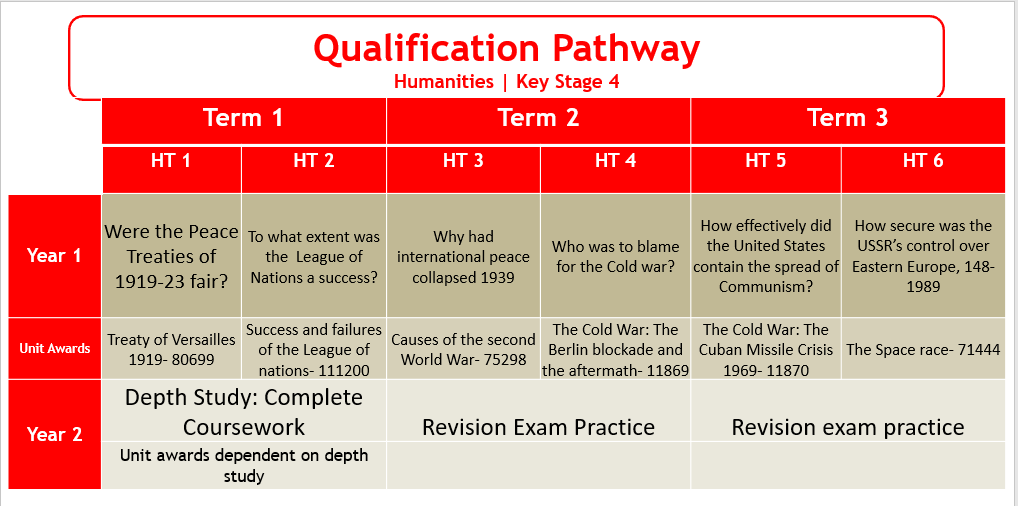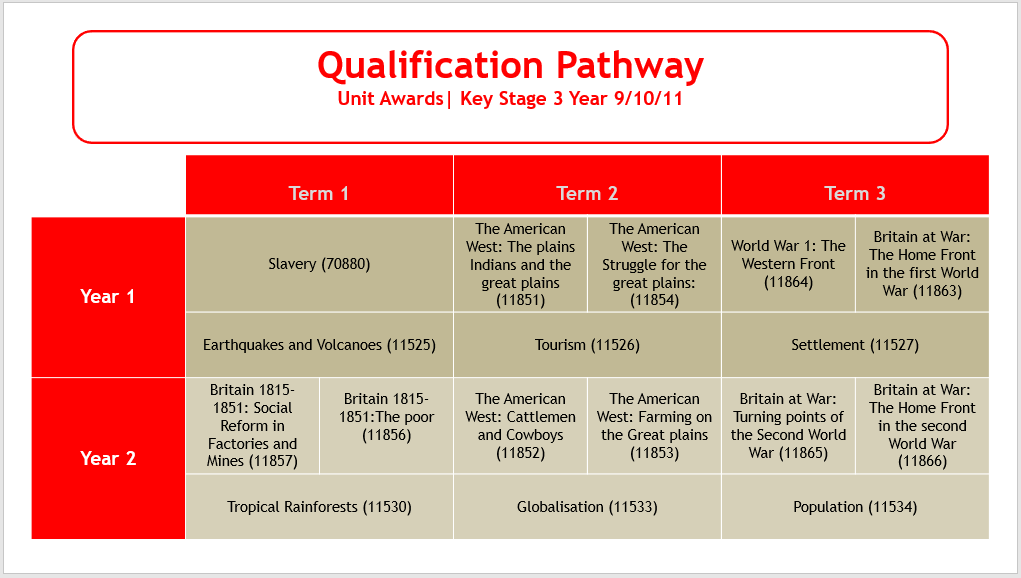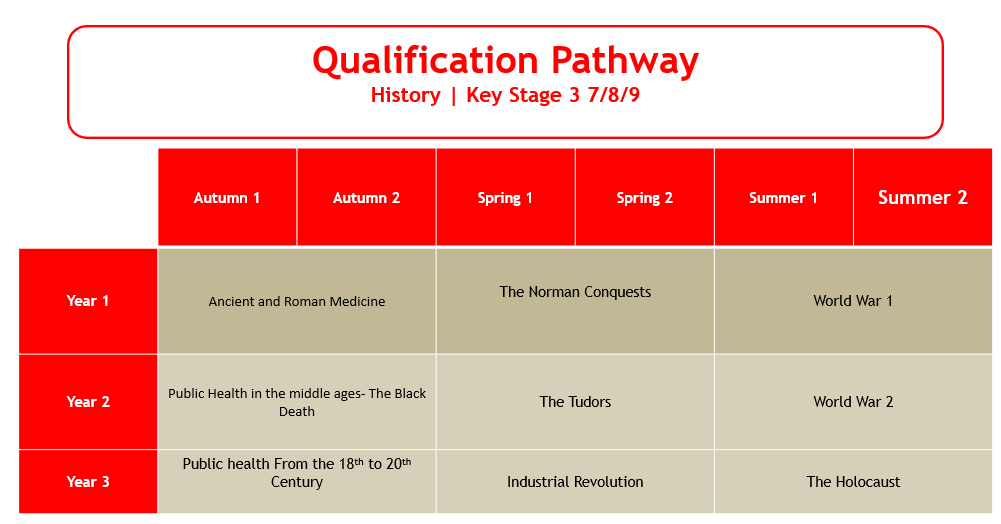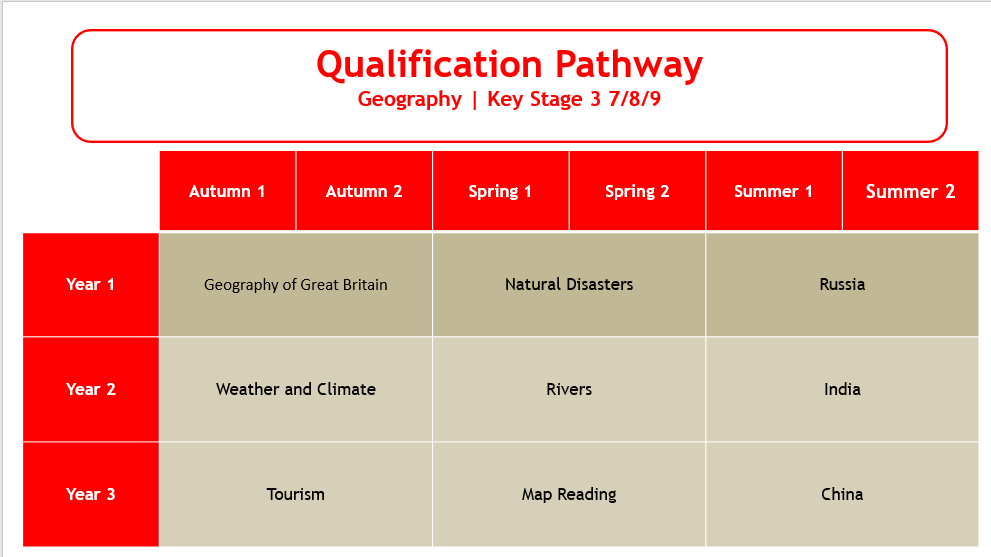Humanities
Our Schools Vison and Values
Our Aim
To identify and meet individual learning needs through a nurturing environment.
Our Objective
• To provide appropriate high quality learning opportunities for all.
• To develop practice partnership working with all stakeholders.
• To create an environment where opinions and views are respected and appreciated.
• To encourage everyone to develop their talents to enable them to take up their rightful place in their communities.
Mission Statement
We believe in a learning community where everyone feels valued, included and achieves.
Implementation
Key Stage 3
Pupils across all sites in Years 7, 8 & 9 receive two 45 minute lessons a week focussing on one lesson of History and one lesson of Geography. Pupils are taught in mixed year and ability groups.
Pupils follow a rolling programme of study spread over 3 years following national curriculum guidelines, our cohort of pupils is ever changing and is designed to meet the needs of pupils who are here a short time before reintegration to mainstream, and those on our roll at our special school.
Due to the mixed year group classes in some cases year 9 pupils will work with some KS4 pupils towards gaining AQA Entry Level Unit awards in both History and Geography.
Pupils work is frequently marked in accordance with policy, and pupils have the opportunity to show progress through extended pieces of writing, which is designed not only to show knowledge in humanities, but improve basic literacy skills in preparation for KS4.
Key Stage 4
Pupils in Years 10 & 11 receive two 45 minute lessons a week working towards Cambridge IGCSE History 9-1 (0977).
The two year GCSE course consists of 2 examinations with a choice of coursework or a final examination, this gives flexibility for our changing cohort and allows us to better meet the needs of the individual pupils.
Pupils are taught in mixed ability groups.
The IGCSE is underpinned by AQA unit awards this allows for all abilities to achieve.
Pupils complete a range of both formal and informal assessments in the form of extended writing activities in class and also mock and real examinations.
Due to mixed year groups some KS4 pupils work with Year 9 pupils towards AQA unit awards in History and Geography.
GCSE Courses for History
history igcse syllabus
history igcse syllabus update
Home Tuition
Pupils on home tuition are able to follow the same curriculum as above however programs of study are tailored to meet their own needs and other courses are available depending on arrangements made with mainstream schools in order to make transition back to mainstream as seamless as possible.
Enrichment
Humanities outside the classroom is primarily done by the youth team and pupils have access to a variety of activities and field trips throughout the year that allow pupils to see and experience what they have learned in the classroom in the real world.
For more information on the BLC's Humanities Curriculum please click the link below:
humanities 19-20
Please contact our Curriculum Lead for Humanities, Mr Kieran Russell for further information on 0300 303 8384 Option 2 or via email at krussell@theblc.org.uk
Impact
In humanities we develop the skills and understanding in order for our pupils to become well rounded learners.
Literacy, numeracy, working with others and independently building independence, respect, and responsibility to help them get them back on track and engaged in learning. Reading opportunities are provided frequently.
Many pupils are from disadvantaged backgrounds and have little awareness of the world beyond what has happened today in their own local area.
The humanities curriculum, builds cultural capital extending those boundaries both in terms of important events of the past, or geographical events of the present that impact on the people they are today and the future.





